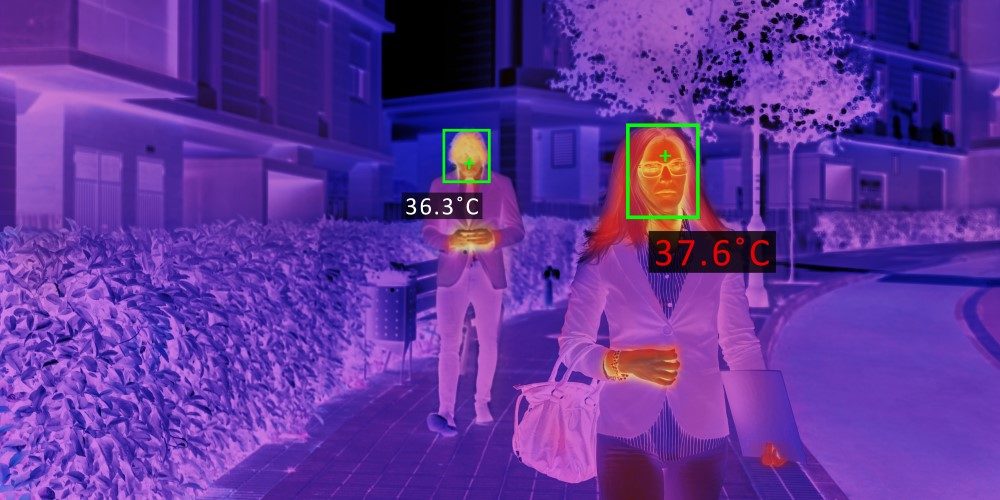
8.28.20 – SSI – Ken Kirschenbaum
Companies have been warned, repeatedly, not to perform any service without a proper contract. That is also true for selling and installing thermal imaging equipment, especially in nonmedical facilities.
While thermal imaging devices have been around for many years due to the pandemic this technology has suddenly been thrust into the spotlight as a hot new item.
From the standpoint of that application, the alarm industry is trying to figure out whether it can sell and install these devices in the first instance, and what legal issues are involved from governmental agencies, the FDA in particular.
These thermal imaging devices are being marketed and used for mass surveillance in an effort to identify elevated skin temperature. Why do I say it’s for mass surveillance? Because alarm companies are not being asked to install these devices in a hospital setting where a patient is scanned to determine if there is fever associated with acute illness, specifically at the moment, COVID-19.
A hospital would not be looking to an alarm company for this device. Who would? A commercial establishment with a lot of customer traffic entering the facility, such as a supermarket, movie theater, sports arena, courthouse, etc.
Some alarm industry experts have concluded that all thermal imaging devices must be FDA approved before being installed and used. This is their position even though the FDA has taken the position that during the current health crisis it will not object to non-FDA-approved thermal imaging devices being installed and used.
Sorry but I’m only a lawyer, not an expert in thermal imaging devices. If the FDA says it will not object to the use of the non-FDA-approved devices then I have to accept that position and conclude that alarm companies can install these devices and customers can use these devices.
I believe that most thermal imaging devices are not yet FDA approved. I also believe that despite the FDA requirement that the devices be medical grade, clearly those asking the alarm industry for these devices do not intend to use them for medical diagnosis, treatment, cure or prevention.
That raises another issue that the ACLU has advanced, which is that use of nonmedical thermal imaging devices may create a false sense of security for the general public. In other words, if you go to the mall and there is a thermal imaging device at the entrance you are entitled to assume that the premises are COVID-19 free.
I’m sorry, I’m cynical; I don’t buy this line of nonsense. Even the “least sophisticated consumer” can’t be this dumb. In addition, these devices are being recommended as part of a layered screening process to lessen exposure risk rather than a complete solution.
Alarm/security/fire companies have been warned, repeatedly, not to perform any service without a proper contract. That is true for selling and installing thermal imaging equipment also, especially in nonmedical facilities.
You need to warn that the devices may not be FDA approved. You also need to warn that you have no responsibility for the effectiveness of the devices and that the devices are not necessarily medical grade or designed for the diagnosis, treatment, cure or prevention of any illness.
The Standard Commercial All in One (alarmcontracts.com) has been updated to deal with these new contractual concerns. Can things change that would affect the sale and installation of thermal imaging devices?
Sure. For now the AHJ for medical devices is the FDA, which while it certainly could change its position and enforcement policies, as of this writing there is no roadblock there. What is perhaps more curious is who is actually asking for these devices?
One alarm company owner told me that his commercial customers would not pay for these expensive devices. In any case, under the current circumstances it would be wise to insist that your customer sign your updated commercial contract, without changes, to maximize your contractual protection.
